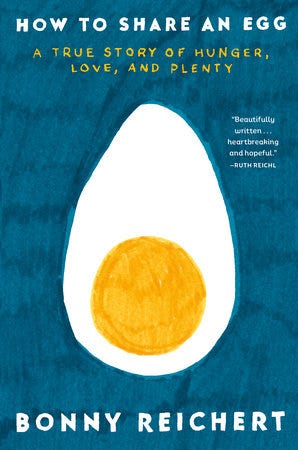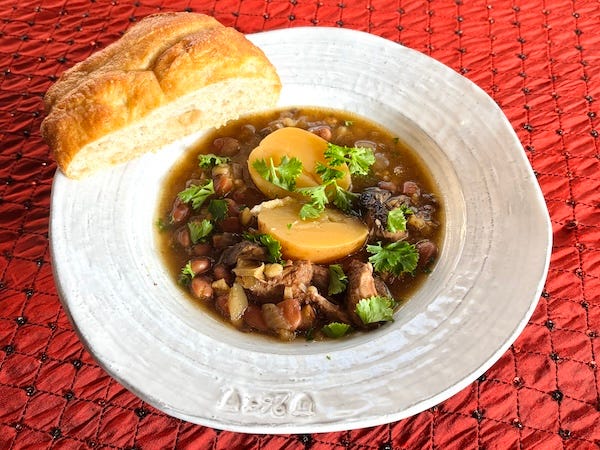Memorial to the Murdered Jews of Europe (Berlin) by Ferdinand Stohr, Unsplash.com
No aspect of this post is created using any type of AI. All mistakes are mine, a real human.
THINKING ABOUT:
What does it mean to bear witness? I’ve been thinking about this since attending the first Grieftastic Book Fair in Los Angeles last month. Every writer who spoke at that event bore witness to their loss and their grief. We in the audience listened and absorbed it. Two of my friends recently lost their fathers and bearing witness sometimes meant texting them with no expectation of a response and sending silly animal videos on Instagram. When my spouse is working through something, sometimes it looks like sitting and listening and other times it’s just being there, letting him figure it out. And with the world, it’s hearing and seeing the pain of humanity and not shying away from it.
It's so natural to want to DO something, especially in our fix-it, step-in, give-advice culture. But there’s something powerful in simply being in it with the person, admitting it is real, acknowledging their pain.
You’ll know when and if there’s a time to act.
WATCHING:
The new documentary Sugarcane (National Geographic/Hulu/Disney+) is a powerful film about an investigation into unmarked children’s graves at a Catholic Indian school in Canada. It was hard not to watch the movie and not be filled with incandescent rage at the entire system: hundreds of “schools” in Canada and the U.S. that tore children from their families, enforcing the white way of life with the specific goal of destroying their culture. The system was rampant with abuse—both sexual and corporal punishment—and the impacts of that system include alcoholism, enforced rape, mixed children sent off for adoption, 215 unmarked children’s graves, and denial by the church. It’s an incredibly powerful film. All white people need to watch it as the first step toward healing of this continent.
READING:
How to Share An Egg: A True Story of Hunger, Love, and Plenty by
I was midway through the book when she first brought up cholent, a stew made with beef, barley, beans, and potatoes that’s slow cooked for 24 hours so it can be eaten without breaking the rule of working on the Sabbath. I found a recipe online and decided to make it for this week’s piece. Last night I nearly finished her book and found that cholent became an extended part of her story. I was so moved by her description of her ancestors carrying their cast iron pots of stew to the bakery to cook overnight.
I have a lovely, older Jewish neighbor and I asked her if she wanted some cholent. She nearly fell over when I told her what I’d made and wrote me a note last night:
Thank you so much for the delicious surprise “chilt.” The textures and flavors took me right back to my grandmother’s cooking. Such sweet memories awakened.
Food does that. Beautiful food writing does that. Bearing witness does that.
EATING:
Since Bonny doesn’t have her cholent recipe available (yet), I used Tori Avey’s from her beautiful eponymous blog exploring Mediterranean and Jewish cooking. See below for my notes.
Cook’s Note: You can ask the butcher to cut up the meat (and saw across the bone) to release more of the marrow. I removed as much of the extra fat, silverskin, and sinew as I could from the beef shank, as I don’t like very fatty stew. I’m sure that real cholent would embrace all that rich nutrition.
Migraine peeps: If you are following my plan, substitute a gluten-free grain like kasha (buckwheat groats) for the barley, and try thinly sliced leeks instead of the onion.
Low-so peeps: I made this without added salt, used low sodium chicken stock, and then just added a little at the table. It was so rich in flavor, especially since I used smoked paprika.
Plant-based peeps: You could skip the beef, as this bean-grain-potato stew would be very satisfying.
Chronic illness peeps: If you have the butcher cut your meat, this is super low prep. Buy baby potatoes and wash them in the bag before adding to the slow cooker. Pre-soaking the beans overnight is a cinch. You’ll have hearty food for days.
Fun To Be Around is free. I post for the delight of writing and connecting. No paywalls, ever. If you enjoy my writing and find yourself looking forward to the next issue, support my work as a disabled writer with a $5 monthly subscription. Feel free to try a paid subscription for a month or two, and no worries if you decide to cancel. Come back soon. I love seeing you here.








Thank you so much for including me in this beautiful post, Stephanie. I am working on my cholent recipe and will have it in the new year. I admit to taking some cheffy liberties -- more soon! xo